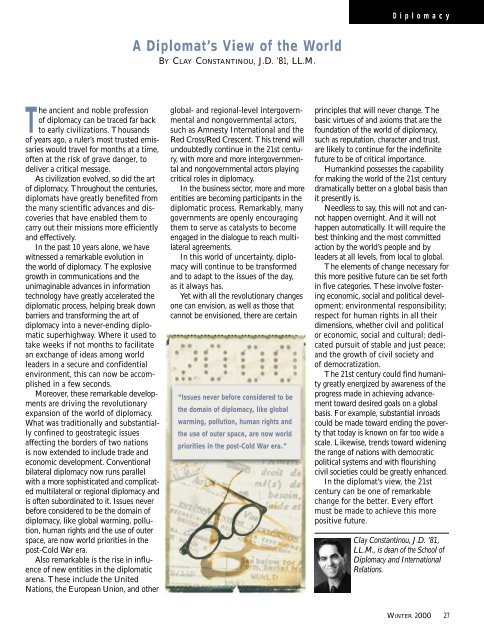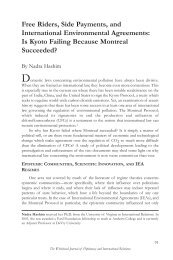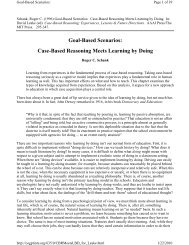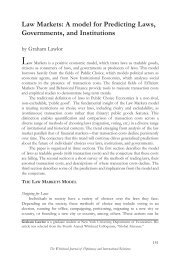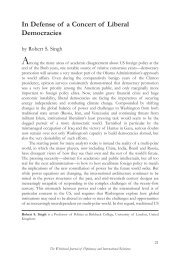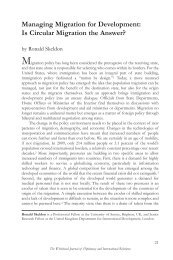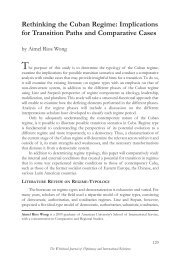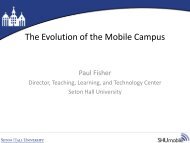Seton Hall Magazine, Winter 2000 - Seton Hall University
Seton Hall Magazine, Winter 2000 - Seton Hall University
Seton Hall Magazine, Winter 2000 - Seton Hall University
You also want an ePaper? Increase the reach of your titles
YUMPU automatically turns print PDFs into web optimized ePapers that Google loves.
The ancient and noble profession<br />
of diplomacy can be traced far back<br />
to early civilizations. Thousands<br />
of years ago, a ruler’s most trusted emissaries<br />
would travel for months at a time,<br />
often at the risk of grave danger, to<br />
deliver a critical message.<br />
As civilization evolved, so did the art<br />
of diplomacy. Throughout the centuries,<br />
diplomats have greatly benefited from<br />
the many scientific advances and discoveries<br />
that have enabled them to<br />
carry out their missions more efficiently<br />
and effectively.<br />
In the past 10 years alone, we have<br />
witnessed a remarkable evolution in<br />
the world of diplomacy. The explosive<br />
growth in communications and the<br />
unimaginable advances in information<br />
technology have greatly accelerated the<br />
diplomatic process, helping break down<br />
barriers and transforming the art of<br />
diplomacy into a never-ending diplomatic<br />
superhighway. Where it used to<br />
take weeks if not months to facilitate<br />
an exchange of ideas among world<br />
leaders in a secure and confidential<br />
environment, this can now be accomplished<br />
in a few seconds.<br />
Moreover, these remarkable developments<br />
are driving the revolutionary<br />
expansion of the world of diplomacy.<br />
What was traditionally and substantially<br />
confined to geostrategic issues<br />
affecting the borders of two nations<br />
is now extended to include trade and<br />
economic development. Conventional<br />
bilateral diplomacy now runs parallel<br />
with a more sophisticated and complicated<br />
multilateral or regional diplomacy and<br />
is often subordinated to it. Issues never<br />
before considered to be the domain of<br />
diplomacy, like global warming, pollution,<br />
human rights and the use of outer<br />
space, are now world priorities in the<br />
post-Cold War era.<br />
Also remarkable is the rise in influence<br />
of new entities in the diplomatic<br />
arena. These include the United<br />
Nations, the European Union, and other<br />
A Diplomat’s View of the World<br />
BY CLAY CONSTANTINOU, J.D. ’81, LL.M.<br />
global- and regional-level intergovernmental<br />
and nongovernmental actors,<br />
such as Amnesty International and the<br />
Red Cross/Red Crescent. This trend will<br />
undoubtedly continue in the 21st century,<br />
with more and more intergovernmental<br />
and nongovernmental actors playing<br />
critical roles in diplomacy.<br />
In the business sector, more and more<br />
entities are becoming participants in the<br />
diplomatic process. Remarkably, many<br />
governments are openly encouraging<br />
them to serve as catalysts to become<br />
engaged in the dialogue to reach multilateral<br />
agreements.<br />
In this world of uncertainty, diplomacy<br />
will continue to be transformed<br />
and to adapt to the issues of the day,<br />
as it always has.<br />
Yet with all the revolutionary changes<br />
one can envision, as well as those that<br />
cannot be envisioned, there are certain<br />
“Issues never before considered to be<br />
the domain of diplomacy, like global<br />
warming, pollution, human rights and<br />
the use of outer space, are now world<br />
priorities in the post-Cold War era.”<br />
D i p l o m a c y<br />
principles that will never change. The<br />
basic virtues of and axioms that are the<br />
foundation of the world of diplomacy,<br />
such as reputation, character and trust,<br />
are likely to continue for the indefinite<br />
future to be of critical importance.<br />
Humankind possesses the capability<br />
for making the world of the 21st century<br />
dramatically better on a global basis than<br />
it presently is.<br />
Needless to say, this will not and cannot<br />
happen overnight. And it will not<br />
happen automatically. It will require the<br />
best thinking and the most committed<br />
action by the world’s people and by<br />
leaders at all levels, from local to global.<br />
The elements of change necessary for<br />
this more positive future can be set forth<br />
in five categories. These involve fostering<br />
economic, social and political development;<br />
environmental responsibility;<br />
respect for human rights in all their<br />
dimensions, whether civil and political<br />
or economic, social and cultural; dedicated<br />
pursuit of stable and just peace;<br />
and the growth of civil society and<br />
of democratization.<br />
The 21st century could find humanity<br />
greatly energized by awareness of the<br />
progress made in achieving advancement<br />
toward desired goals on a global<br />
basis. For example, substantial inroads<br />
could be made toward ending the poverty<br />
that today is known on far too wide a<br />
scale. Likewise, trends toward widening<br />
the range of nations with democratic<br />
political systems and with flourishing<br />
civil societies could be greatly enhanced.<br />
In the diplomat’s view, the 21st<br />
century can be one of remarkable<br />
change for the better. Every effort<br />
must be made to achieve this more<br />
positive future.<br />
Clay Constantinou, J.D. ’81,<br />
LL.M., is dean of the School of<br />
Diplomacy and International<br />
Relations.<br />
WINTER <strong>2000</strong> 27


